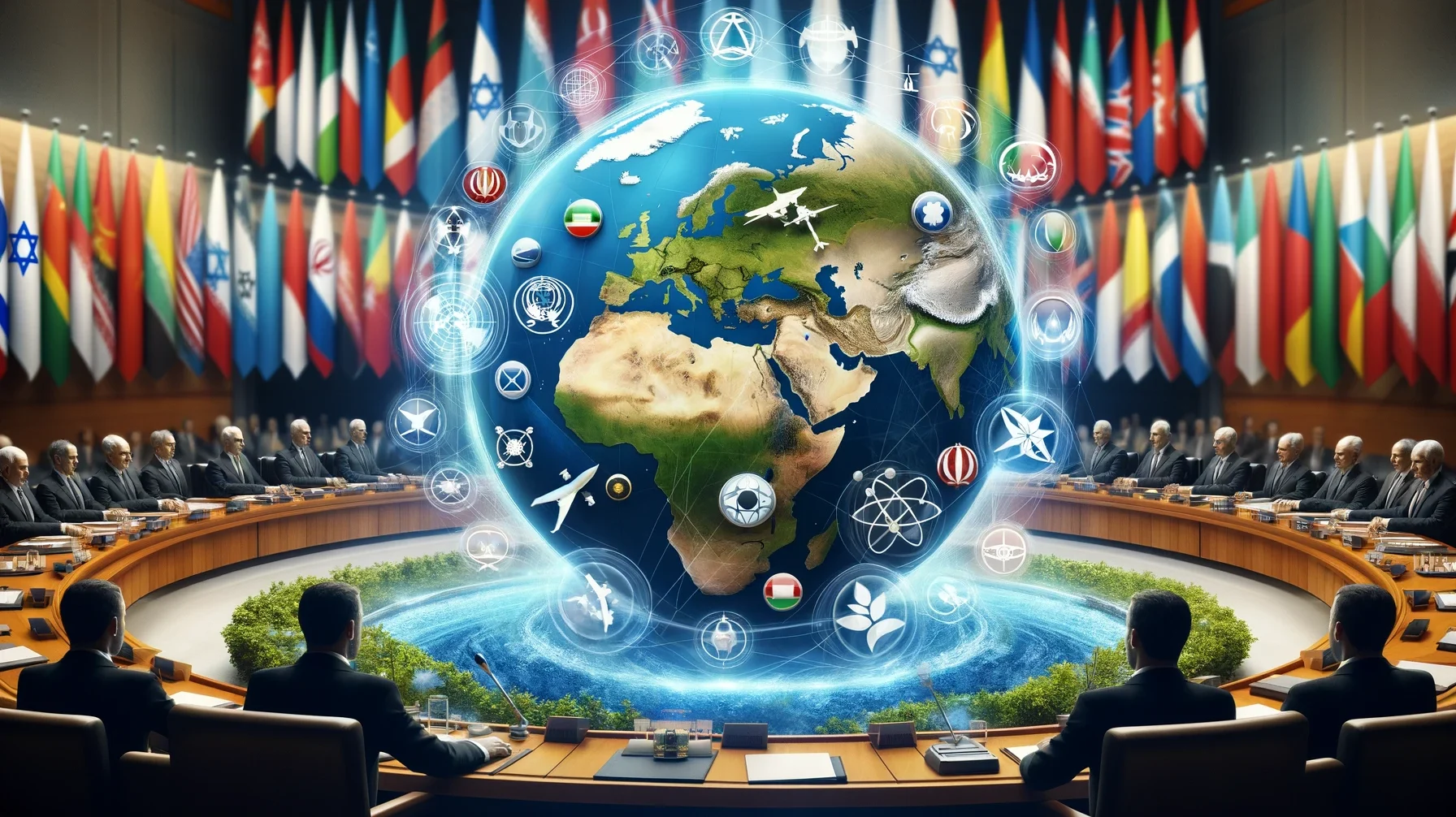A Framework for Peace and Stability in the Middle East
Al-Ittihad, UAE, May 8
The American response to Iran’s retaliatory drone and missile strikes against Israel was expected but unhelpful. The decision to impose more sanctions on Iran and provide more weapons to Israel, all while urging de-escalation, was a mix of contradiction and potential for aggravating the existing tensions. Disturbing comments came from the Israeli and Arab media, as well as political authorities and so-called experts in the United States and the West. Some Arabs applauded Iran’s show of force and deterrence, while Israelis lauded the efficiency of its defensive measures in foiling the attack. Western “hawks” initially praised the defensive success but quickly shifted to downplay the Iranian threat. They then advocated for massive retaliation from Israel to “neutralize” Iran, asserting that anything less would embolden further attacks. Such myopic views are not only short-sighted but also perilous. The reality is that neither Israel nor Iran can be completely vanquished. Any attempt to do so would have catastrophic consequences on the entire region, leading to devastation and economic ruin in the Arab Levant and the Arabian Gulf. The wider Middle East craves peace and stability, not more strife. Resorting to arms and hostile attitudes will only worsen the situation. History holds a valuable lesson: Conflicts in the region do not end in defeat but rather fuel further aggression or morph into more vicious forms. After years of misguided American and Western policies, the region is entangled in numerous intertwined conflicts fed by external actors like Iran and its allies, or the US/Israel coalition and its supporters. America’s steadfast support for Israel, coupled with a reluctance to engage constructively with Iran, has led to the current predicament: Gaza’s humanitarian crisis, Israel-Hizbullah tensions, and Syria’s ongoing turmoil following the civil war. Iran is entangled in various conflicts, including those in Libya and Sudan. Amid America’s wavering policies, its diminished global standing, the ascent of China and the China-Russia alliance, and persistent regional threats, Arab nations are compelled to safeguard their interests independently by fostering regional peace and stability. They are forging ties with Iran, aligning with China and Russia, maintaining relations with the United States, and making overtures toward Israel. However, in light of the Gaza war and the looming Israel-Iran conflict, the United States has reverted to its failed strategies of the past. Rather than advocate for diplomacy and de-escalation, why not combat Iranian interference by collaborating with the P5+1 group at the United Nations to establish a regional security framework like the Organization for Security and Cooperation in Europe (OSCE) did during the Cold War? The idea was initially proposed by the Iraq Study Group in 2006 to address the aftermath of the Iraq war, urging the formation of an international support group that includes Iraq’s neighbors and the five permanent Security Council members. This vital notion was overlooked then but remains critical in ensuring regional stability and global peace. Resolving the Israeli-Palestinian conflict, curbing Iranian regional meddling, instituting political and economic reforms, establishing a nuclear-free zone in the Middle East, and bolstering regional investment and trade are essential components of this framework. Like the Madrid Peace Conference, the Middle East’s version of the OSCE would bring together Arab states, Iran, Turkey, and Israel under the Security Council’s stewardship. While some nations may need encouragement to participate, concessions and incentives should be offered. Unlike at the Madrid Conference, pressure to reach agreements should persist beyond the initial meetings. US policymakers may argue against the feasibility of this idea, citing potential nonparticipation. Yet, similar doubts surrounded the Madrid Conference, underscoring the importance of persistence and creativity. Failure to pursue such initiatives would spell a perilous path toward permanent conflict. —James Zogby (translated by Asaf Zilberfarb)
Give the gift of hope
We practice what we preach:
accurate, fearless journalism. But we can't do it alone.
- On the ground in Gaza, Syria, Israel, Egypt, Pakistan, and more
- Our program trained more than 100 journalists
- Calling out fake news and reporting real facts
- On the ground in Gaza, Syria, Israel, Egypt, Pakistan, and more
- Our program trained more than 100 journalists
- Calling out fake news and reporting real facts



